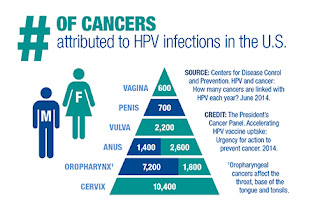How to Help a Friend in Need
At the beginning of the school
year I had a health scare. I was in and out of the emergency room for chest
pain, shortness of breath, and body aches that would not go away. I
ended up on bed rest for three weeks—the longest three weeks of my life.
What made these longest three
weeks of my life bearable were my friends. I would receive multiple texts and
phone calls each day from them. Some even came to visit me at home and brought
me food. None of the medicine that the doctors prescribed helped me
as much as my friends being there to take my mind away from my boredom, pain,
and worries. I was able to talk to them about my concerns like falling behind
in school, not knowing for sure why I am on bed rest, and other crazy things
that popped in my mind. I’d like to say that if it were not for my friends, I
would not have recovered as quickly as I did.
Although we may take it for
granted, friends are an important part of most people’s lives. They are an
important support system—we laugh with them and cry with them. However, it is important to be there for our friends when they need us.
Having a friend in need is
sometimes uncharted territory. Figuring out ways to be helpful is not always
clear. So here are a couple of ways to be there for a friend in need:
1. Listen. Sometimes a person needs to be
heard. Being an outlet for a friend with a lot on their mind might help them
think through the problem they are working though. Being a good listener can be
reassuring and strengthen the bonds of friendship.
2. Don’t pry. Your friend may not be ready
to share certain details. When they are ready they will tell you.
3. Don’t ask how you can help. Sometimes
your friend does not want to bother or burden you. Even if that is not the
case, it is one more thing to think about when their energy needs to be focused
on the problem at hand. Instead, bring them lunch, run an errand for them, or
even take them to the movies!
4. Be there for your friend. Make sure
that your friend knows that you are there for them. Setting time aside to spend
with them might be a break from an already stressful life. Be sure to check-in
on them, but let them know if its okay if they don’t respond.
5. Know your resources. If your friend
needs a professional to talk to there are many resources available including
the Counseling and Psychological Services on campus and the National Suicide
Prevention Lifeline: 1-800-273-8255.
6. Seek help. If someone is threatening
their own life or some else’s life, bring your friend to the Emergency Room or
call 911 immediately.
Life’s challenges happen to the
best of us and it’s okay!
Knowing that you have a supportive friend can make all the difference on
getting through it. People are social creatures by nature, and friends are a
powerful medicine!
References
DeMeo, T. (2016, March 09). How to Be a Friend in Need --
Seven Tips That Can Help a Troubled Friend. Retrieved April 06, 2017, from http://www.huffingtonpost.com/terry-demeo/how-to-be-a-friend-in-need----seven-tips-that-can-help-a-troubled-friend_b_9418726.html\
The Jed Foundation, Facebook, the Clinton Foundation,
Facebook, Instagram. (2014). Help a friend in need. The Jed Foundation.
By Marissa Mayeda



Comments
Post a Comment